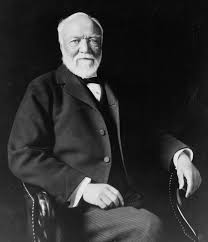
Shrewd Investor and Nasty Man
Given the massive Federal deficit, it’s a sure bet that taxes are going up sooner rather than later. Before the Teabaggaz start posting, I think we can all agree that cutting taxes while starting a war is a bad idea. Stuff costs money, whether we’re talking about body armor for our warfighters in Afghanistan or Under Armour shirts. But the problem is what to do about it, because we have to fund our deficit somehow. However, we also have a really fragile economy. If the government raises taxes, will it crowd out the investment and spending needed to create jobs?
The idea behind cutting taxes in the Reagan era was that if less money went to taxes, more would be used for private sector investing, and that the private-sector investing would generate so much economic growth that the loss in revenue from the tax cut would be short-lived. Eventually the economy would expand so much that more taxes would come in at the lower rate because of the larger base. Private-sector investing did increase; the U.S. remains the strongest capital market in the world. It didn’t increase by enough to offset the tax cuts, and part of Reagan’s economic legacy was an increased Federal deficit.
Money can be spent on taxes, consumption, savings, and investment. (Paying down debt is a form of savings.) Money that goes to one purpose cannot be used for another. Á‚ Money that the government takes in from taxes can also be used for consumption, savings, or investment. War and Medicare are examples of government consumption spending (which may be on behalf of citizens). Paying down debt is a form of savings, and goodness knows that the government at all levels has plenty of debt to pay off. The government invests when it spends money on bridges, schools, airports, and the like. For accounting purposes, this is handled like consumption.
When taxes are cut, some of the money that would have been spent on taxes goes to consumption instead. Increased spending can help build the economy, but a lot depends on what people buy. Buying fuel-efficient American cars creates jobs for American workers. The decreased energy consumption would put less pressure on our infrastructure and could even lead to a decreased U.S. military presence in the Middle East. Yeah, this is the stuff of Green Party utopia, but it also illustrates how some types of consumption spending function like investment spending.
By the way, one of the biggest investments that most individuals make is in their education. However, that is handled as consumption in national accounting, as though the money were spent on shoes and beer instead of tuition and textbooks. Some economists feel that this understates the rate of investment in our economy.
Andrew Carnegie believed that he was justified in denying raises to his workers even as he raked in the cash because the workers would just drink their pay raises away. Carnegie used the money to buy libraries and museums, universities and symphonies. His legacy is amazing, but is it fair? Does the launch of Sesame Street offset the murders during the Homestead strike?
Likewise, I hesitate to say that buying cheap consumer goods is wrong, but I wonder if that’s the best thing that we could be doing. If we are not going to invest, then maybe the government needs to do so on our behalf in order to stabilize the economy. Á‚ I’m not enthusiastic about paying more taxes, but I don’t see how people buying cheap goods made with low-cost Chinese labor sold by minimum wage employees at Wal-Mart is going to create the sustainable investment that this country needs.
I’m not thrilled about the prospect of paying higher taxes, but for whatever reason, we have proven to ourselves that individuals cannot invest and spend our way to national prosperity. Sweden is one example of a nation that has both high taxes and a high standard of living, so it’s possible. Can we do it? That, I’m just not sure of.




Comments